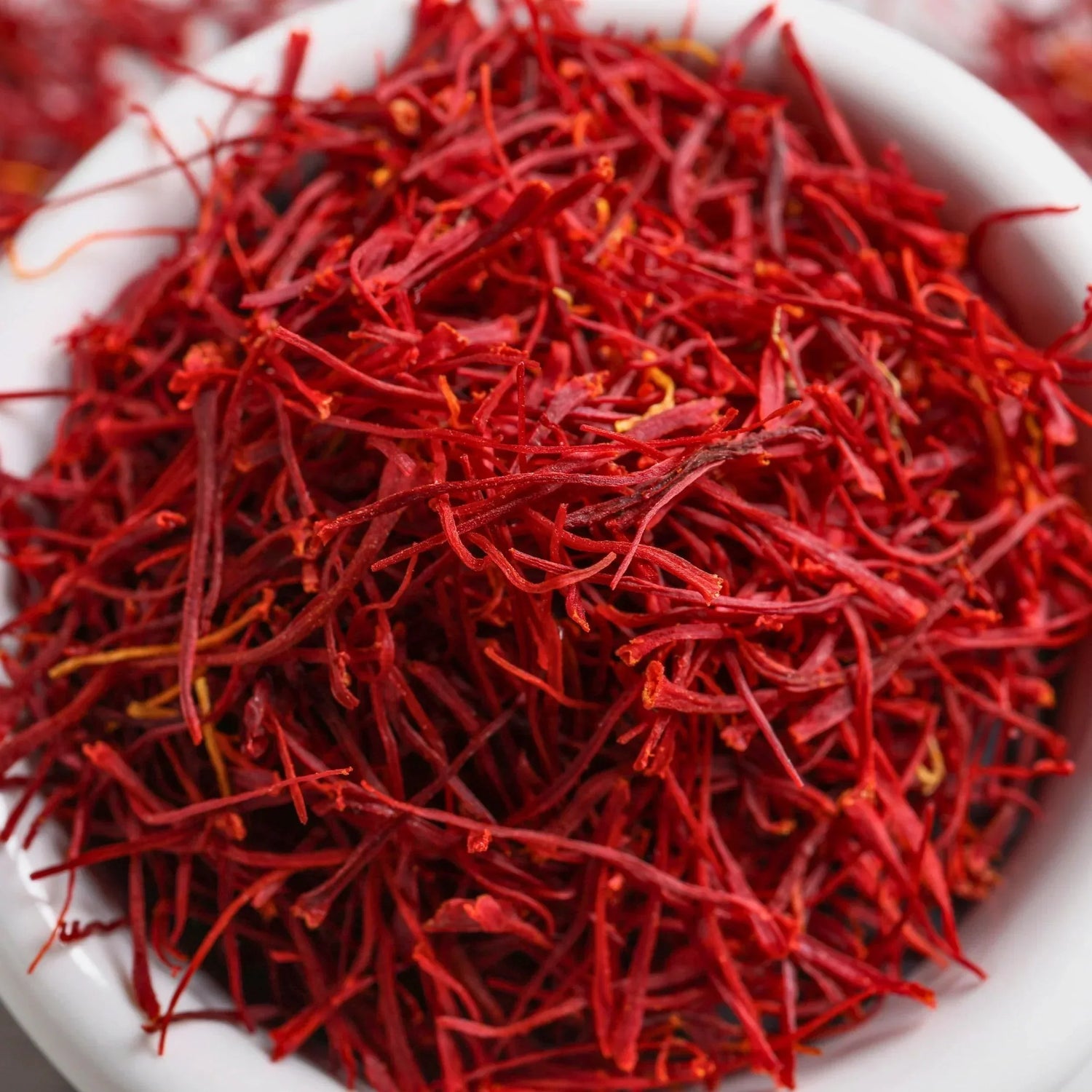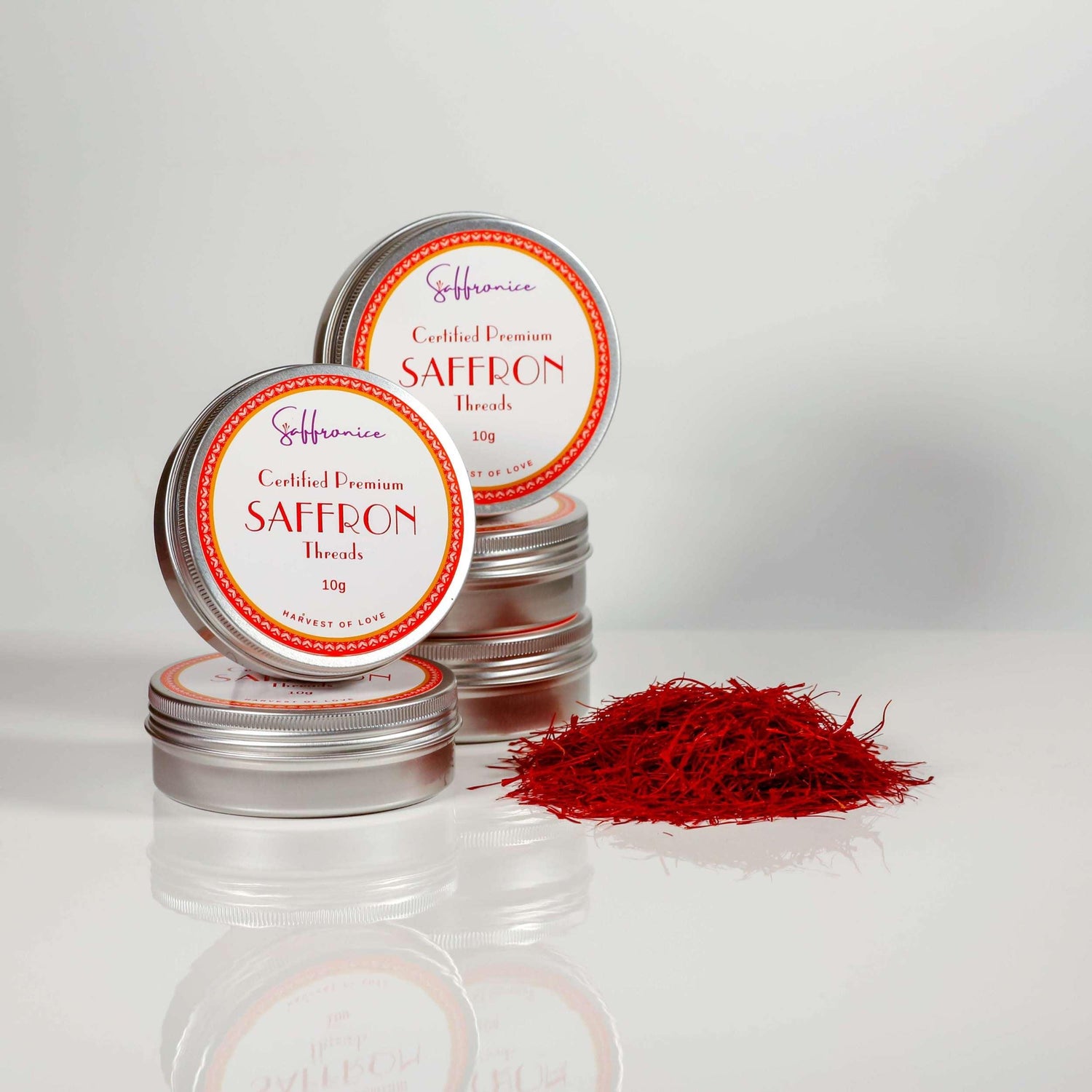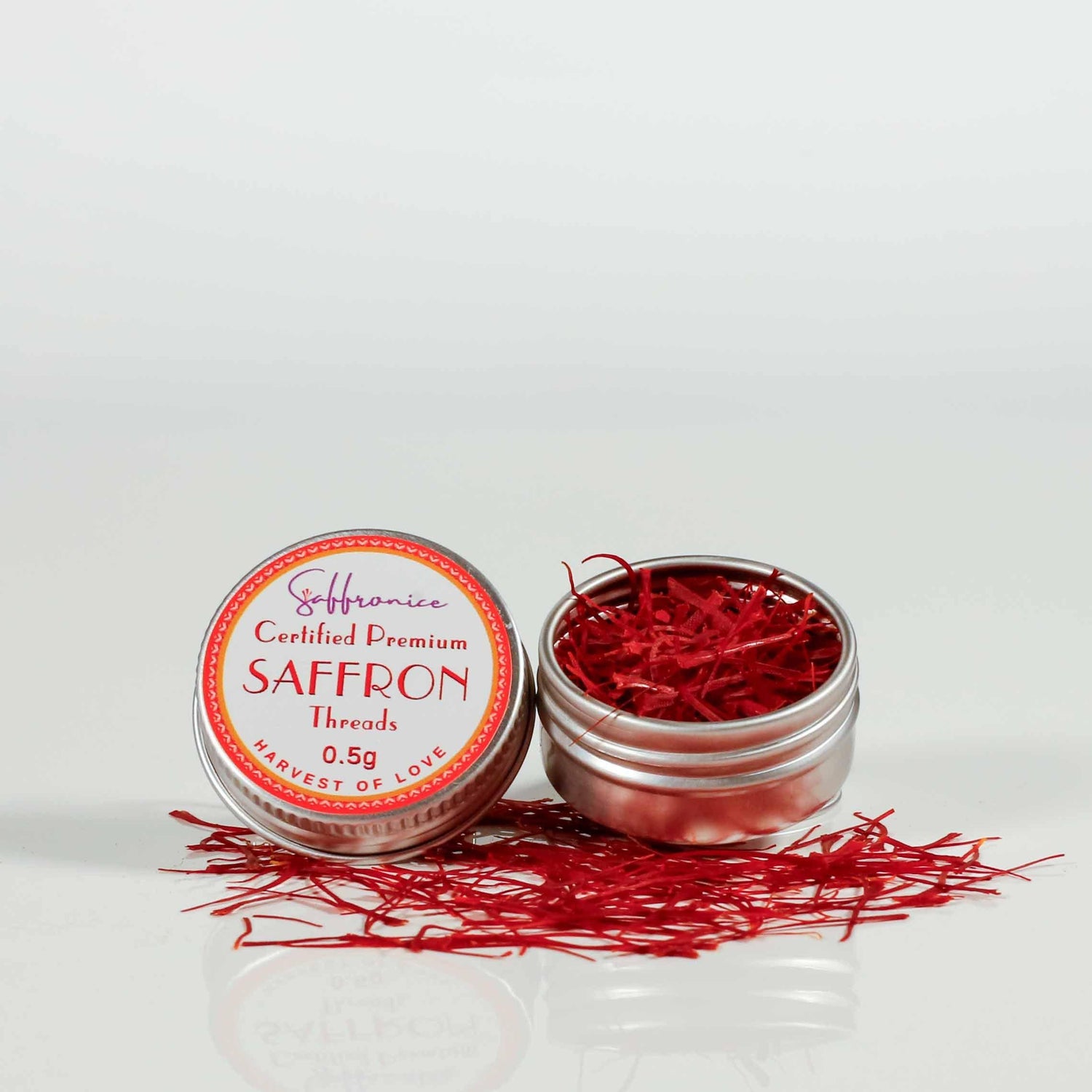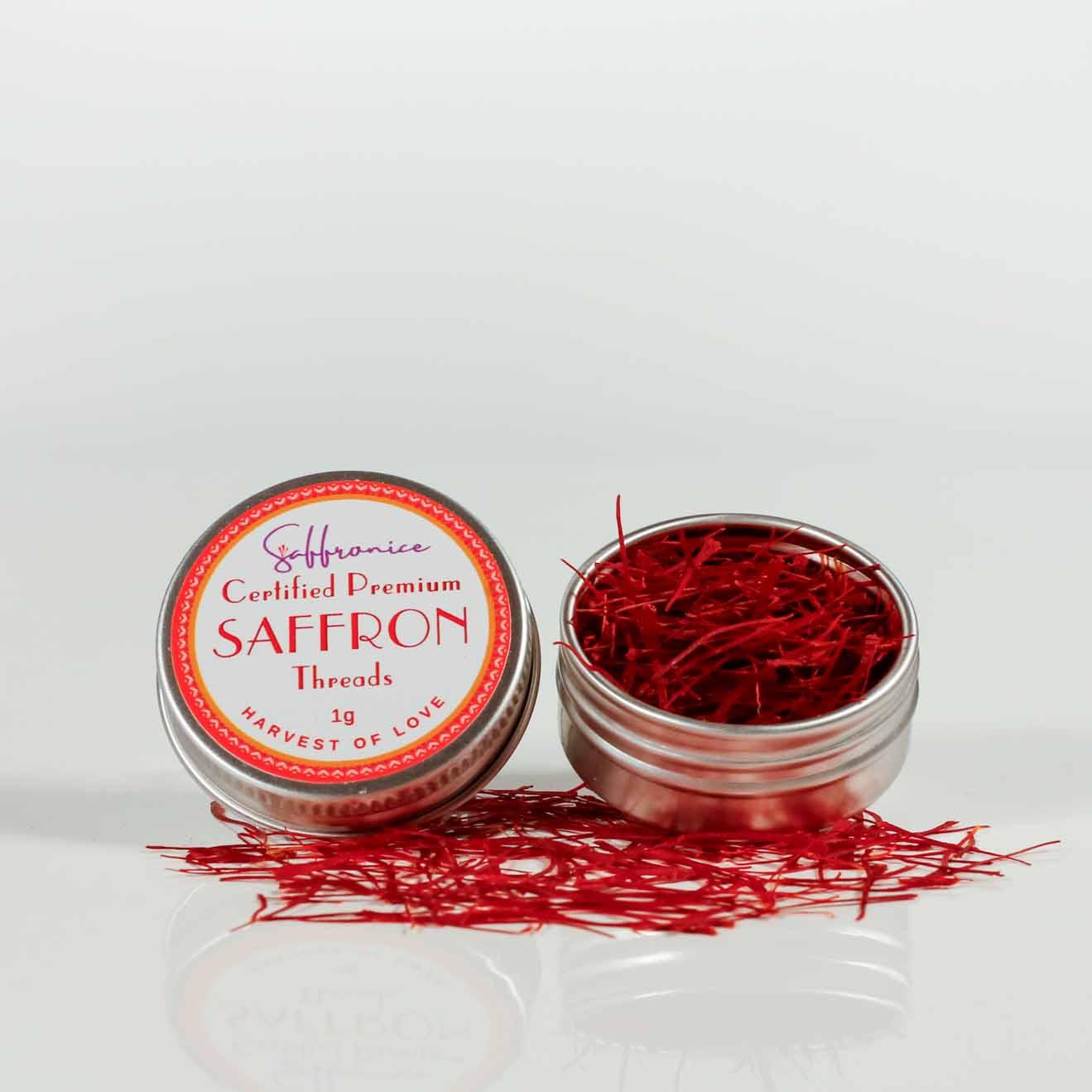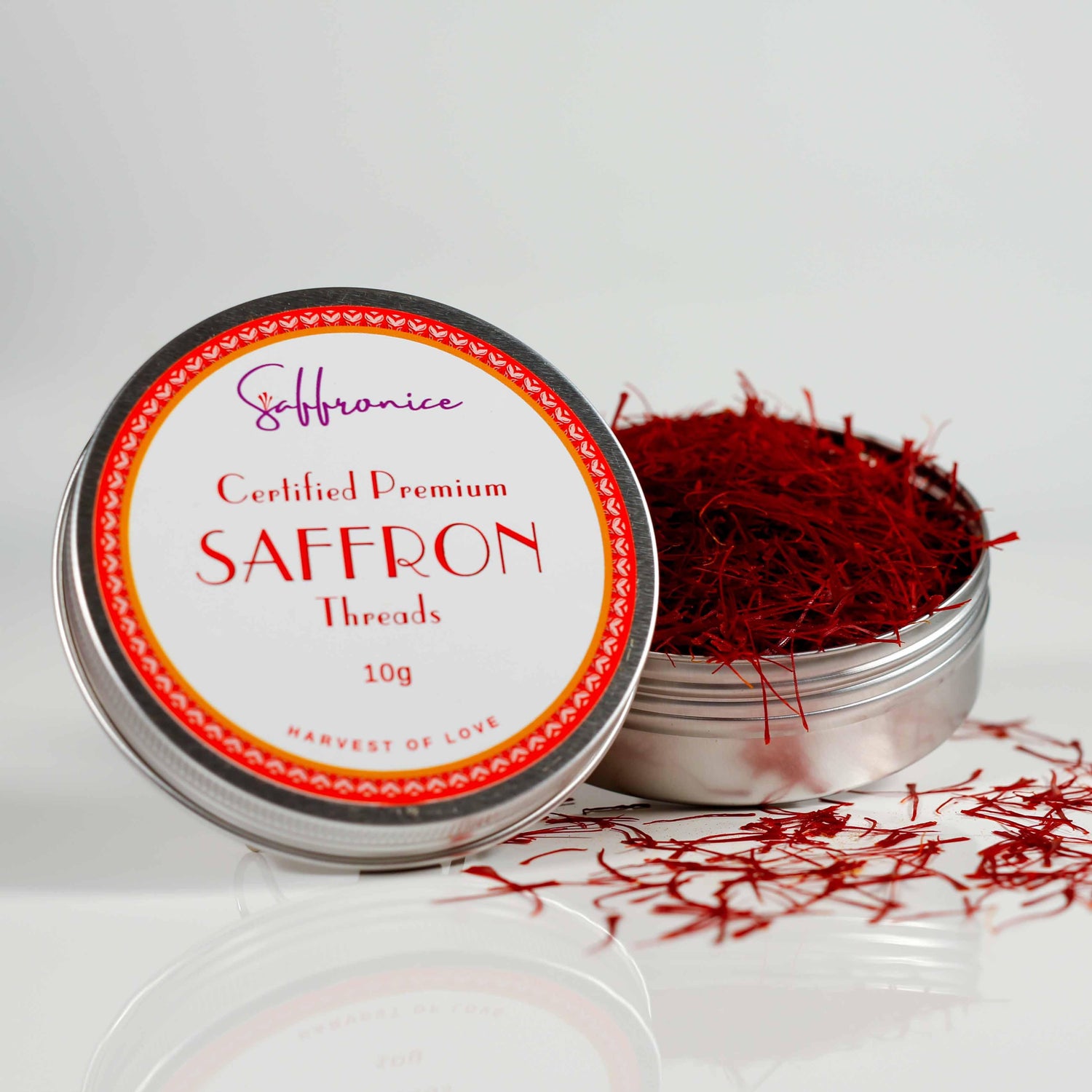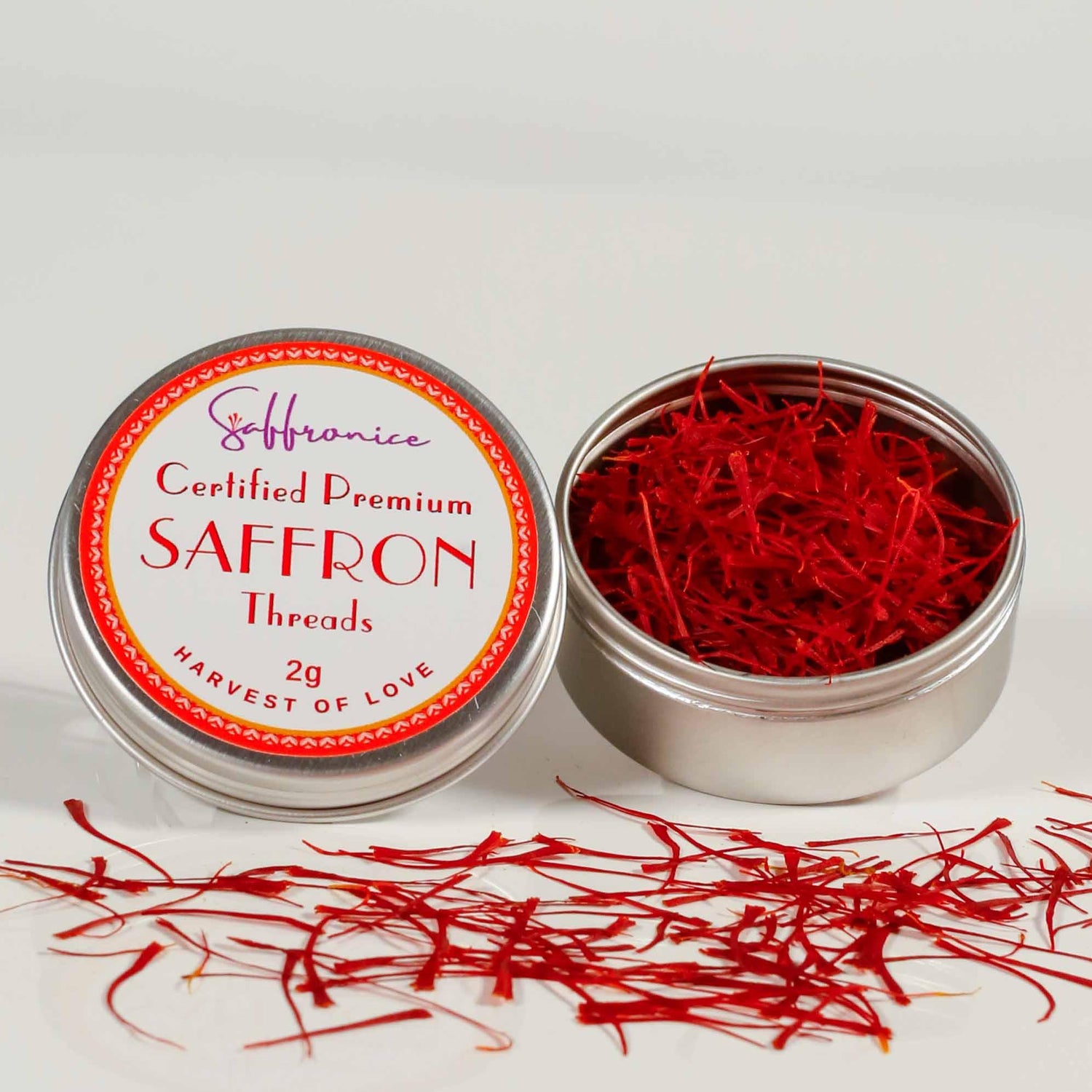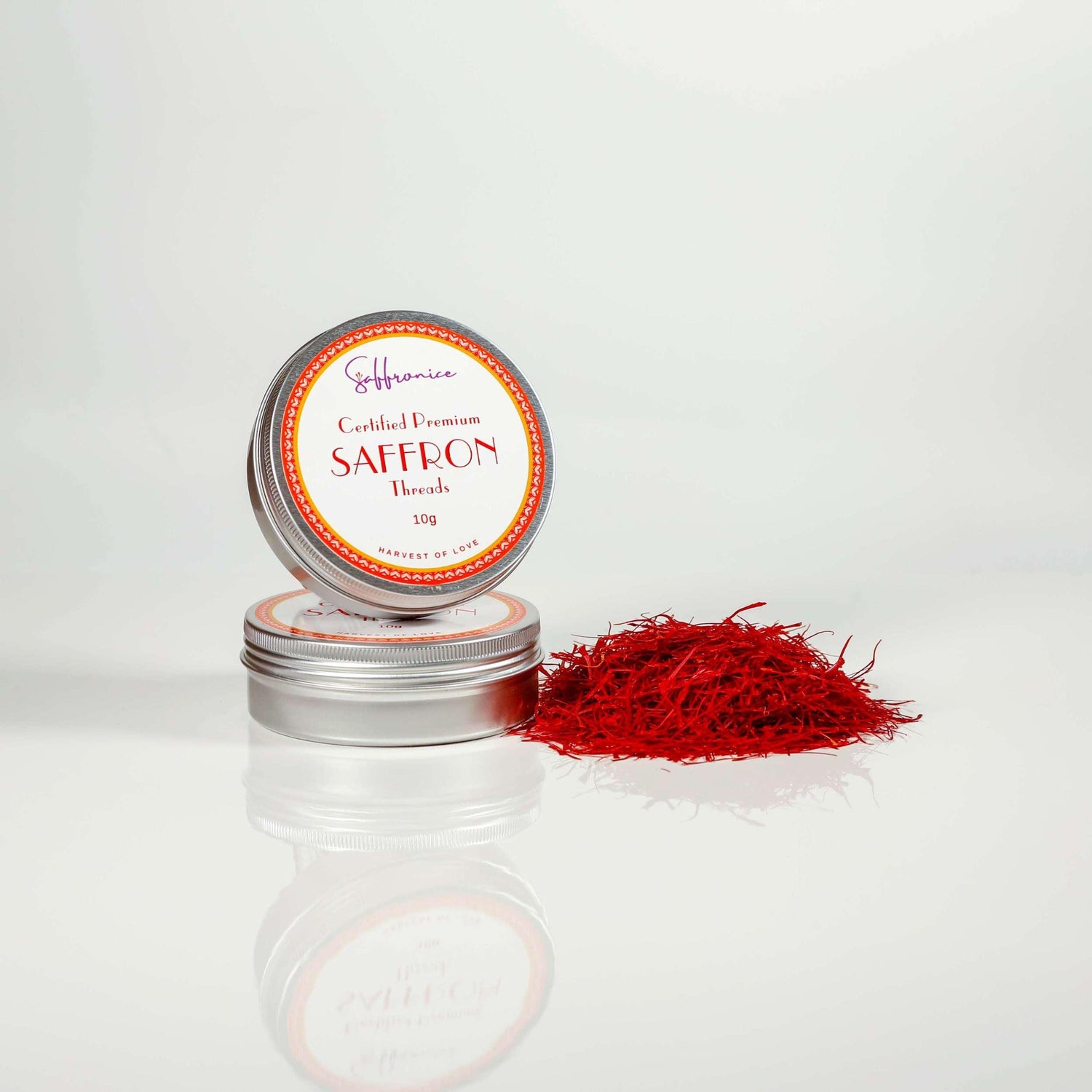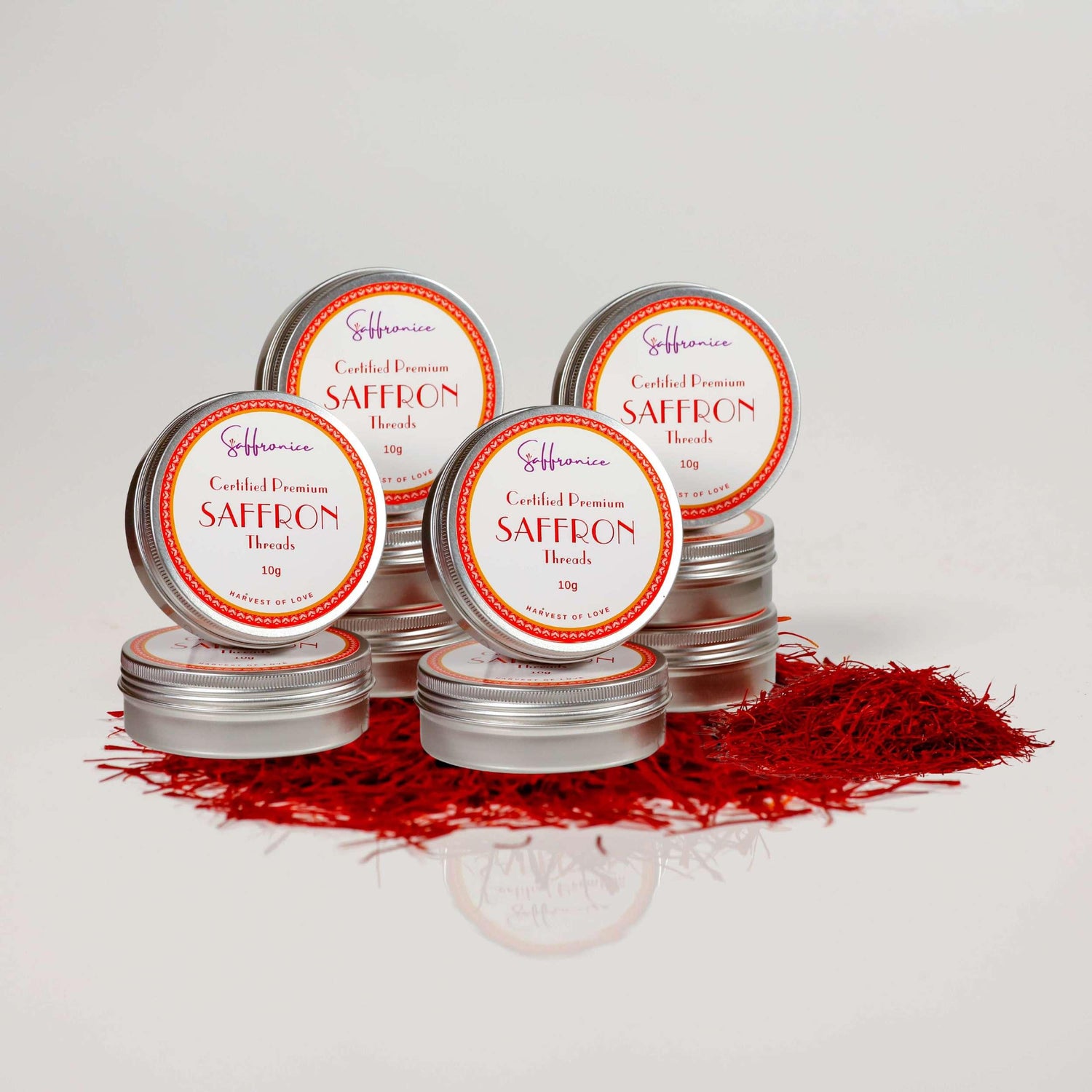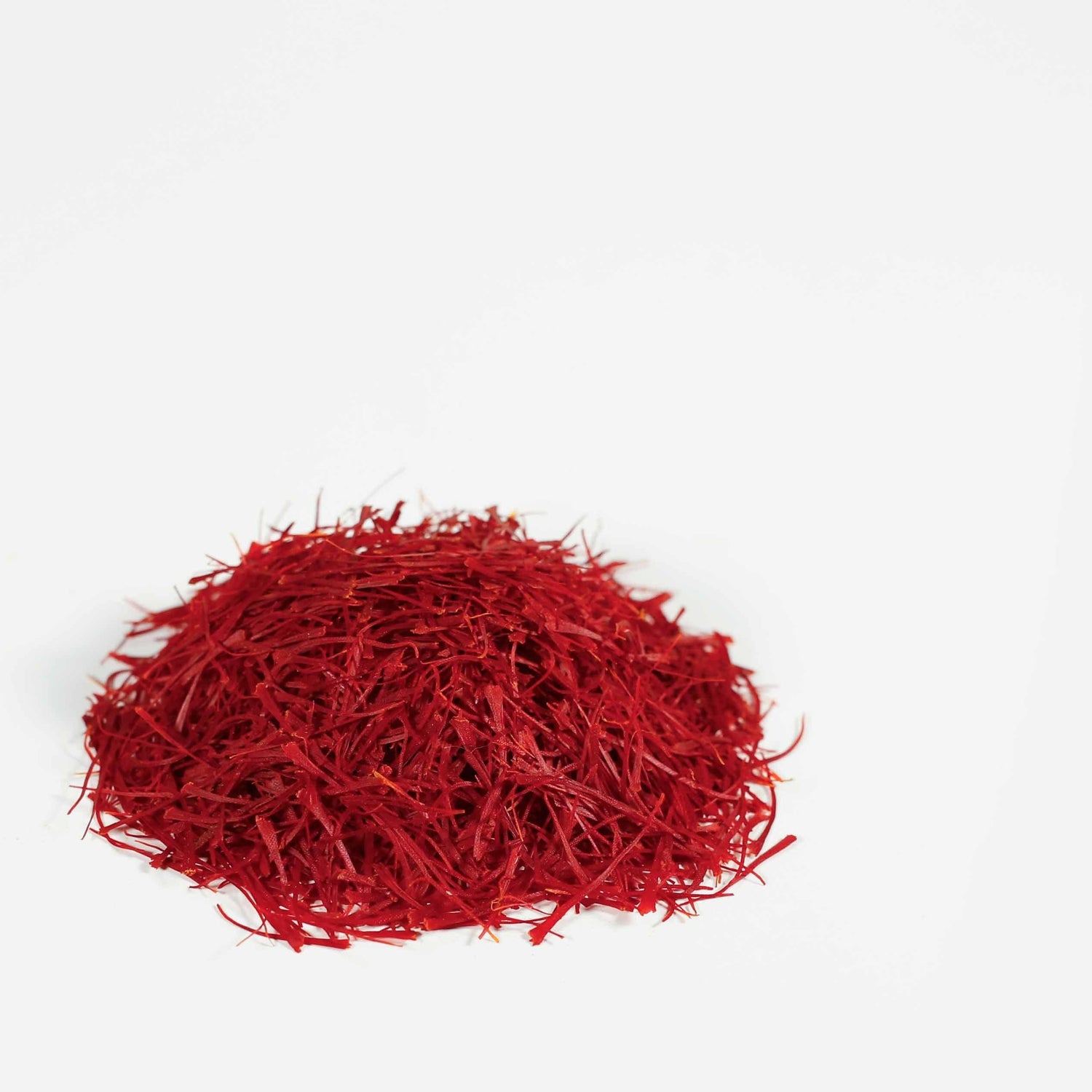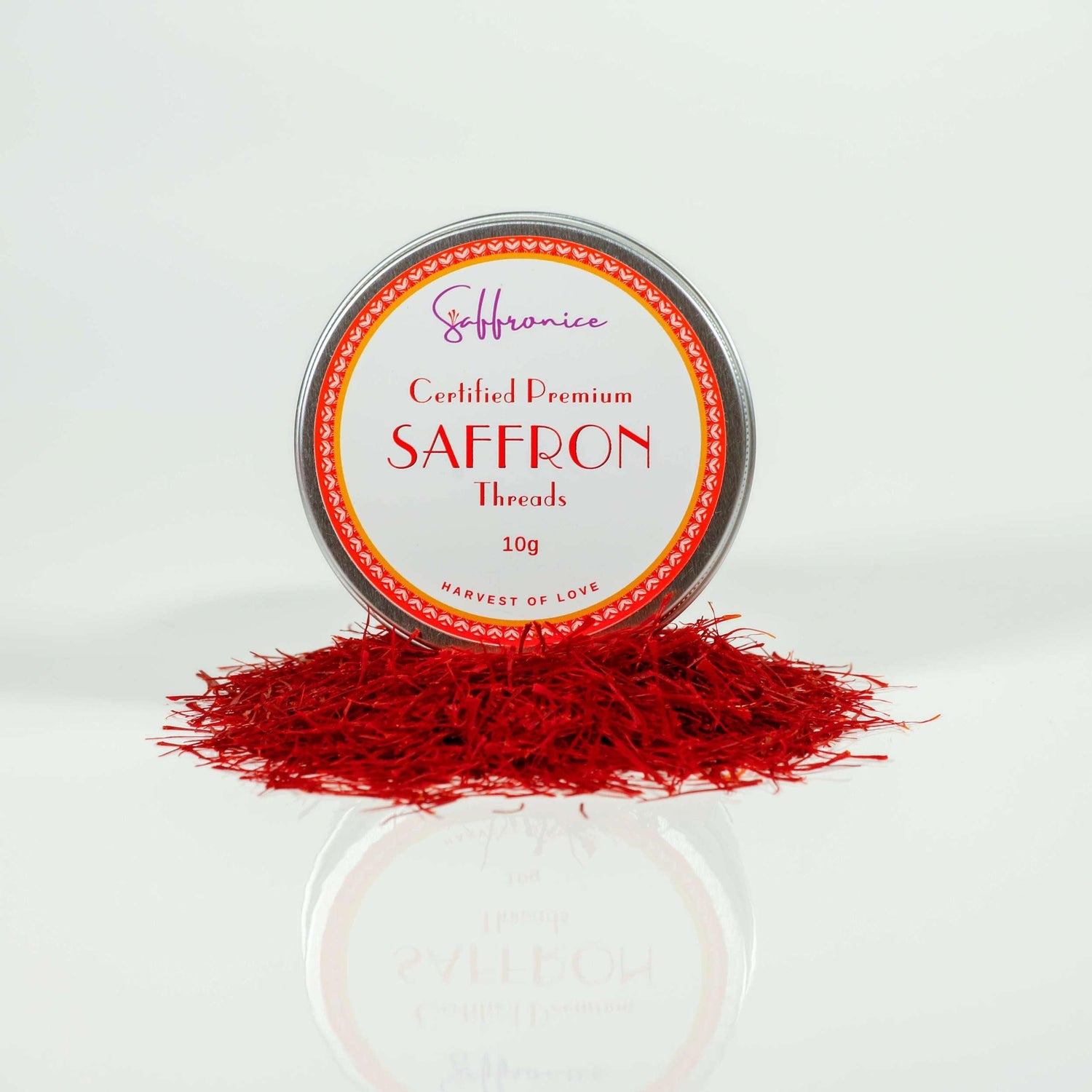Saffron, a spice derived from the flower of Crocus sativus, is renowned not only for its culinary uses but also for its potential health benefits. This vibrant spice has been used traditionally in various cultures for its medicinal properties.
Cancer remains a complex and devastating disease affecting millions globally. The search for effective treatments continues, with a growing interest in natural remedies. Among these, saffron has emerged as a promising candidate in laboratory studies.

What Research Says About Saffron and Cancer
Saffron contains bioactive compounds such as crocin, safranal, and picrocrocin. Research indicates these compounds exhibit anti-cancer properties through various mechanisms.
While initial findings are encouraging, more research is essential to fully understand their effects on humans and establish appropriate dosages.
The Role of Bioactive Compounds in Saffron's Anti-Cancer Effects
Key Bioactive Compounds in Saffron
Saffron, derived from the flower of Crocus sativus, is rich in several bioactive compounds that have garnered attention for their potential anti-cancer properties. The primary compounds include:
These compounds are not only responsible for saffron's distinctive color, aroma, and flavor but also contribute to its medicinal properties.
Crocin: A Potent Antioxidant
Crocin is the carotenoid pigment responsible for saffron's vibrant red hue. It has been extensively studied for its antioxidant properties, which play a crucial role in combating cancer. Antioxidants protect cells from oxidative stress, a condition that can lead to DNA damage and cancer progression.
Research Findings:
- A study published in the Journal of Nutrition and Cancer demonstrated that crocin inhibited the growth of prostate cancer cells in vitro.
- Another study highlighted crocin's ability to induce apoptosis (programmed cell death) in colorectal cancer cells, suggesting its potential as a chemopreventive agent.
Safranal: Modulating Immune Response
Safranal, the compound responsible for saffron's distinct aroma, has shown promise in modulating immune responses and inhibiting tumor growth. Its anti-inflammatory properties may also contribute to its anti-cancer effects by reducing chronic inflammation, a known risk factor for various cancers.
Research Findings:
- In a study published in Cancer Science, safranal was found to inhibit the proliferation of lung cancer cells.
- Safranal has also been observed to enhance the activity of natural killer (NK) cells, which play a critical role in identifying and destroying cancer cells.
Picrocrocin: Enhancing Chemotherapy Efficacy
Picrocrocin contributes to saffron's bitter taste and has been studied for its potential to enhance the efficacy of conventional chemotherapy drugs. It may work synergistically with these drugs to improve their effectiveness while potentially reducing side effects.
Research Findings:
- Research published in the Journal of Pharmacological Research indicated that picrocrocin could enhance the cytotoxic effects of certain chemotherapy agents on breast cancer cells.
- Another study suggested that picrocrocin may inhibit angiogenesis (the formation of new blood vessels), which is essential for tumor growth and metastasis.

Summary of Anti-Cancer Effects
The combined action of crocin, safranal, and picrocrocin highlights saffron's multifaceted approach to combating cancer. These bioactive compounds exhibit:
- Antioxidant Properties: Protecting cells from oxidative damage.
- Immune Modulation: Enhancing the body's natural ability to fight cancer.
- Apoptosis Induction: Promoting programmed cell death in cancerous cells.
- Synergistic Effects with Chemotherapy: Potentially improving treatment outcomes.
The promising results from laboratory studies underscore the need for further research to validate these findings in clinical settings.

How Saffron May Help Fight Cancer
Saffron's potential as an anti-cancer agent is attributed to various mechanisms of action that target cancer cells. These mechanisms harness the unique bioactive compounds in saffron, which include crocin, safranal, and picrocrocin. Understanding these mechanisms provides insight into how saffron may contribute to combating cancer.
1. Antioxidant Properties
One of the primary ways saffron exhibits its anti-cancer effects is through its potent antioxidant properties. Oxidative stress, caused by an imbalance between free radicals and antioxidants in the body, plays a significant role in cancer development. The bioactive compounds in saffron, particularly crocin, act as powerful antioxidants that neutralize free radicals. This activity helps prevent cellular damage and mutation that can lead to cancerous growths.
2. Modulation of the Immune System
The immune system's role in identifying and destroying cancer cells is crucial for preventing cancer progression. Saffron has been shown to modulate immune responses effectively. Research indicates that saffron can stimulate the activity of natural killer (NK) cells, which are essential for targeting and eliminating cancer cells. Additionally, saffron influences the production of cytokines—proteins that regulate immune responses—thereby enhancing the body's ability to combat cancer.
3. Regulation of Cell Signaling Pathways
Cancer progression involves complex cell signaling pathways that control cell growth, proliferation, and death. Saffron interferes with these pathways at multiple levels:
- Inhibition of Tumor Invasion and Metastasis: Saffron inhibits enzymes such as matrix metalloproteinases (MMPs), which play a critical role in tumor invasion and metastasis. By suppressing MMP activity, saffron prevents the spread of cancer cells to other parts of the body.
- Induction of Apoptosis: Apoptosis, or programmed cell death, is a mechanism that allows the body to eliminate damaged or harmful cells. Saffron compounds like crocin have been shown to induce apoptosis in cancer cells through various pathways, including the activation of caspases—proteins involved in cell death.
- Suppression of Cancer Cell Proliferation: Saffron interferes with signaling pathways that promote cancer cell proliferation. For instance, it downregulates the expression of cyclin proteins that are essential for cell cycle progression, thereby inhibiting uncontrolled cell division.
4. Anti-Inflammatory Effects
Chronic inflammation is another factor that contributes to cancer development. Saffron's anti-inflammatory properties help reduce inflammation at the cellular level. By inhibiting pro-inflammatory cytokines and enzymes like COX-2 (cyclooxygenase-2), saffron alleviates inflammatory processes that could otherwise promote tumor growth.
5. Epigenetic Modifications
Emerging research also suggests that saffron may influence epigenetic modifications—changes in gene expression without altering DNA sequences—that are implicated in cancer development. Compounds in saffron can modulate DNA methylation patterns and histone modifications, leading to the reactivation of tumor suppressor genes and inhibition of oncogenes.
The mechanisms behind saffron’s anti-cancer properties are multifaceted and encompass antioxidant activity, immune modulation, regulation of cell signaling pathways, anti-inflammatory effects, and potential epigenetic changes. These combined actions highlight saffron's potential as a complementary approach in cancer treatment strategies.

Saffron's Potential as a Complementary Approach in Cancer Treatment
Research Studies on Saffron and Cancer Treatment
Scientific interest in saffron has surged due to its potential anti-cancer properties. Several key studies have been instrumental in elucidating the efficacy of saffron extract against various types of cancer:
1. Colorectal Cancer
A 2019 study published in Cancer Science demonstrated that saffron extract inhibited the growth and proliferation of colorectal cancer cells in vitro. Researchers found that crocin, a primary component of saffron, was particularly effective at inducing apoptosis (programmed cell death) and inhibiting cell proliferation.
2. Prostate Cancer
Another study, published in Nutrition and Cancer in 2020, explored the impact of saffron on prostate cancer cells. The findings revealed that saffron extract significantly inhibited the growth of these cells, suggesting its potential use as an adjunctive therapy in prostate cancer treatment.
Insights from Pharmacological Research
Pharmacological research has provided valuable insights into how saffron might be utilized as a chemopreventive agent. The bioactive compounds within saffron—crocin, safranal, and picrocrocin—exhibit several mechanisms that make them promising candidates for cancer prevention:
1. Inhibition of Cancer Cell Proliferation
Studies have shown that these compounds can inhibit the proliferation of various cancer cells by interfering with their growth cycles. For instance, crocin has been highlighted for its ability to halt the cell cycle at specific checkpoints, thus preventing uncontrolled cell division.
2. Induction of Apoptosis
Saffron’s bioactive compounds can trigger apoptosis in cancerous cells. This is crucial because one of the hallmarks of cancer is the evasion of programmed cell death. By restoring this process, saffron could help to eliminate malignant cells more effectively.
3. Suppression of Tumor Growth and Metastasis
Research published in Pharmacological Research indicated that saffron could suppress tumor growth and metastasis. This suppression is achieved through multiple pathways, including inhibition of angiogenesis (formation of new blood vessels that supply tumors) and reduction of inflammatory responses that aid tumor progression.
Potential Use as a Chemopreventive Agent
The concept of chemoprevention involves using natural or synthetic substances to thwart the development or progression of cancer. Saffron fits into this paradigm due to its multi-faceted anti-cancer mechanisms:
1. Antioxidant Properties
Saffron’s antioxidant properties are well-documented. By neutralizing free radicals, saffron can reduce oxidative stress—a condition linked to cancer initiation and progression.
2. Immune System Modulation
Saffron has been shown to modulate the immune system positively. For example, it enhances the activity of natural killer cells, which play a critical role in identifying and destroying nascent cancer cells.
Pharmacological studies continue to explore dosing regimens and delivery methods to maximize these effects while minimizing potential side effects. While existing research offers promising results, ongoing clinical trials are essential for validating these findings and translating them into practical treatments.
The exploration into saffron's potential as a complementary approach in cancer treatment continues to expand our understanding and opens avenues for future research.

Practical Considerations: Incorporating Saffron into Your Cancer Care Plan
Emotional and Physical Support
Patients undergoing cancer treatment often face significant emotional and physical challenges. The incorporation of saffron into their care plan may provide some relief due to its potential health benefits. Known for its antioxidant and anti-inflammatory properties, saffron might help mitigate some side effects associated with conventional cancer treatments such as chemotherapy and radiation. These side effects include fatigue, nausea, and inflammation.
Moreover, saffron has been associated with mood enhancement. Some studies suggest that saffron can aid in alleviating symptoms of depression and anxiety, which are common among cancer patients. The natural compounds within saffron, such as safranal and crocin, play a role in modulating neurotransmitter activity, potentially uplifting mood and providing emotional support during arduous treatment periods. In fact, research indicates that saffron may be an effective natural remedy for depression.
Recommended Dosage Guidelines
Determining the appropriate dosage of saffron for cancer prevention or as an adjunct therapy is crucial. Current research indicates that dosages ranging from 30 mg to 200 mg per day have been explored in various studies without significant adverse effects. However, it is essential to consult healthcare providers to tailor the dosage appropriately to individual needs and medical conditions.
For instance:
- Preventive Dosage: Studies have shown that a daily intake of 50 mg of saffron extract could be beneficial.
- Therapeutic Dosage: Higher dosages up to 200 mg per day have been investigated for their therapeutic potential in managing specific conditions like depression or as part of cancer care.
Culinary Tips for Incorporating Saffron
Incorporating saffron into meals can be both practical and enjoyable, ensuring patients receive its potential benefits while savoring their food. Here are some tips:
- Infusion Method: To maximize the extraction of bioactive compounds, soak a few strands of saffron in warm water or milk for at least 20 minutes before adding it to dishes.
- Complementary Pairings: Saffron pairs well with a variety of foods such as rice, seafood, soups, and stews. For example:
- Saffron Rice: Add the infused saffron water to cooked rice for a vibrant color and aromatic flavor.
- Seafood Dishes: Enhance the taste of paellas or bouillabaisses by incorporating saffron.
- Avoid Overheating: To preserve its potency, add saffron towards the end of the cooking process since high temperatures can degrade its active components.
A thoughtful integration of saffron into one's diet not only introduces its unique flavor but also potentially harnesses its health benefits for those combating cancer. For more information on using saffron effectively in your diet, including common questions about this spice, visit Heray Spice's FAQ section.

Before Starting New Supplements or Remedies
When considering alternative therapies, including the use of saffron for its potential anti-cancer properties, professional guidance is essential.
Healthcare professionals can:
- Evaluate Medical History: Assess your unique medical history and current treatment plan to determine whether saffron supplements are appropriate.
- Provide Dosage Recommendations: Offer precise dosage guidelines based on scientific research and individual health conditions.
- Monitor Interactions: Monitor potential interactions between saffron and other medications or treatments being administered.
- Ensure Safety and Efficacy: Ensure that the introduction of saffron into your regimen does not compromise the efficacy of conventional cancer treatments.
A cautionary note about using saffron for cancer: Despite promising laboratory results, human studies are limited. Self-prescribing saffron without medical advice could lead to unforeseen complications, including adverse reactions or interference with ongoing treatments.
"Consulting healthcare professionals is critical to safely integrating saffron into a comprehensive cancer care plan."
This approach ensures that all potential benefits are maximized while minimizing risks.





